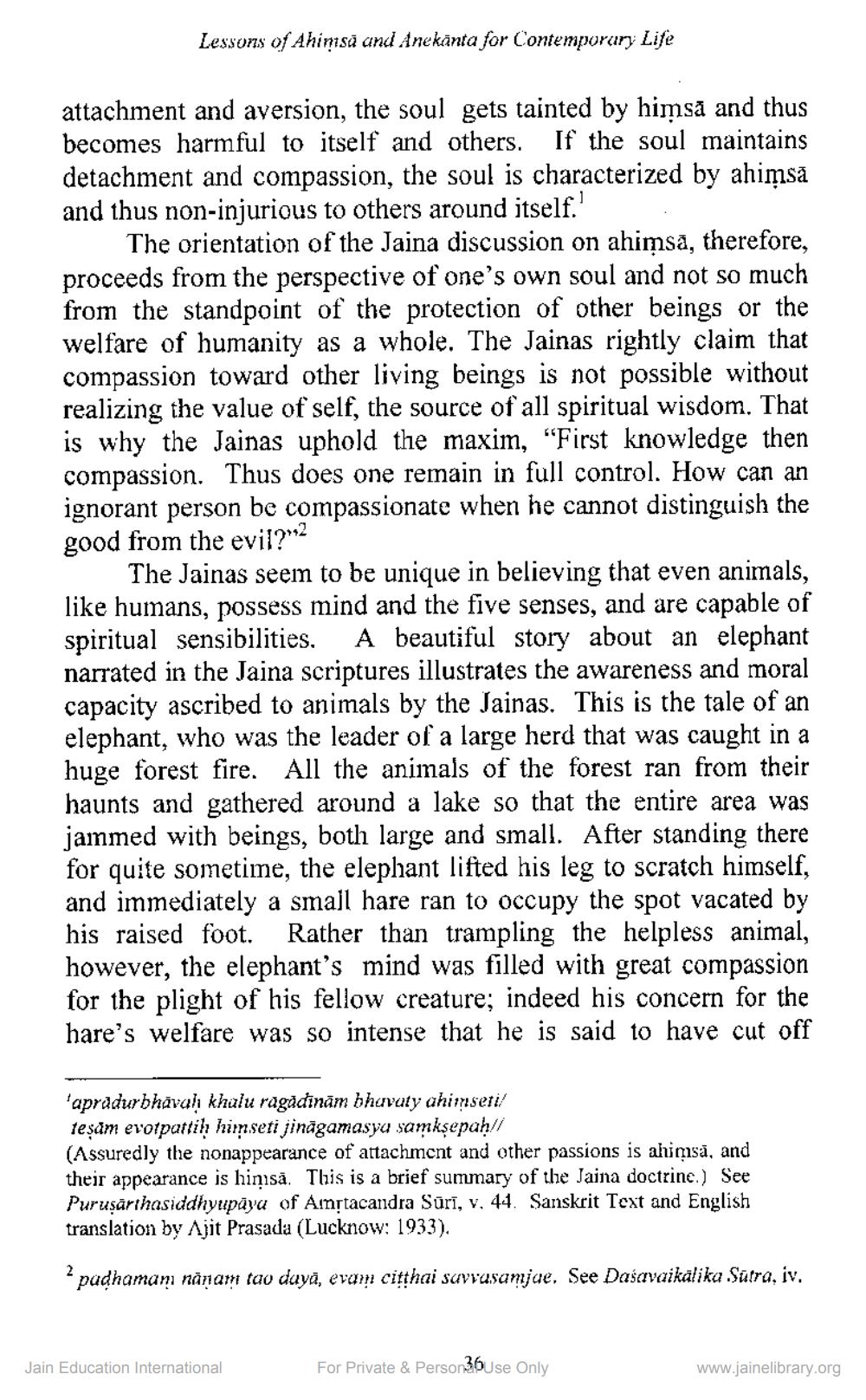Book Title: Ahimsa and Question of Just War Author(s): Padmanabh S Jaini Publisher: Z_Lessons_of_Ahimsa_and_Anekanta_for_Contemporary_Life_014006.pdf View full book textPage 2
________________ Lessons of Ahimsā and Anekānta for Contemporary Life attachment and aversion, the soul gets tainted by himsă and thus becomes harmful to itself and others. If the soul maintains detachment and compassion, the soul is characterized by ahimsa and thus non-injurious to others around itself. The orientation of the Jaina discussion on ahimsa, therefore, proceeds from the perspective of one's own soul and not so much from the standpoint of the protection of other beings or the welfare of humanity as a whole. The Jainas rightly claim that compassion toward other living beings is not possible without realizing the value of self, the source of all spiritual wisdom. That is why the Jainas uphold the maxim, "First knowledge then compassion. Thus does one remain in full control. How can an ignorant person be compassionate when he cannot distinguish the good from the evil?"2 The Jainas seem to be unique in believing that even animals, like humans, possess mind and the five senses, and are capable of spiritual sensibilities. A beautiful story about an elephant narrated in the Jaina scriptures illustrates the awareness and moral capacity ascribed to animals by the Jainas. This is the tale of an elephant, who was the leader of a large herd that was caught in a huge forest fire. All the animals of the forest ran from their haunts and gathered around a lake so that the entire area was jammed with beings, both large and small. After standing there for quite sometime, the elephant lifted his leg to scratch himself, and immediately a small hare ran to occupy the spot vacated by his raised foot. Rather than trampling the helpless animal, however, the elephant's mind was filled with great compassion for the plight of his fellow creature; indeed his concern for the hare's welfare was so intense that he is said to have cut off 'apradurbhāvah khalu ragādinām bhavaty ahimseri/ teşam evotpattih hinseti jināgamasya samkşepah// (Assuredly the nonappearance of attachment and other passions is ahimsa, and their appearance is himsă. This is a brief summary of the Jaina doctrine.) See Purusārthasiddhyupāya of Amrtacandra Sūrī, v. 44. Sanskrit Text and English translation by Ajit Prasada (Lucknow: 1933). padhamani nanam tao dayā, evam citthai suvrusamjue. See Daśavaikälika Sūtra, iv. Jain Education International For Private & Person36Use Only www.jainelibrary.orgPage Navigation
1 2 3 4 5 6 7 8 9 10 11
